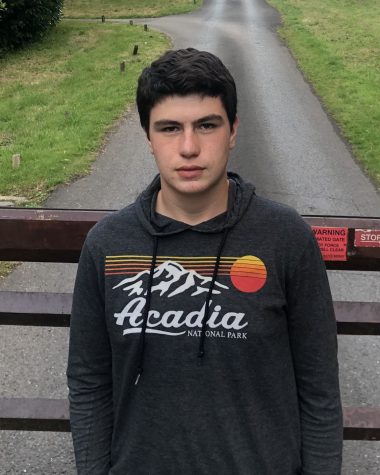A Future For Ludlowe Student Government
May 20, 2022
Elections are fast approaching for Ludlowe students to either re-elect or oust their student representatives. As students hear speeches, gazes should be shifted toward the plan that could have been the future.
To start, we must first acknowledge the current state of our system. As an officer of the Junior Class, I can confidently say that it is satisfactory. It executes necessary functions (proms, fundraisers, etc.) fairly well, although it runs into problems if a student is elected who does not contribute.
The Falcon Council handles the other events, like multiple COVID-19 vaccination clinics, as well as running the Perch store and Battle of the Houses.
But since when was satisfactory the end goal?
Recently there has been talk of reform. There was one system, based primarily on Greenwich High School, and then the Falcon Council edited this to match their goals. These plans were intended to put leadership in responsible hands, as well as address alleged lapses in service to the students.
The Greenwich High School model would have been a dramatic shift from the present system. In a section of the plan obtained by the Prospect, five new positions, three committees, and five subcommittees, all focusing on unique aspects of Ludlowe student life. Existing elected officials would be incorporated into this structure, with all other class governments reporting to the Senior Class President, the only elected official on the Executive Committee (“ExComm”).
However, one major concern with this plan is that all new positions would be un-elected, instead opting to rely on appointments. This includes a new position at the helm, the “Student Body President,” a position to be chosen by interview and recommendation, not a popular vote.
This plan also unites all the classes into one organization to better impact life at Ludlowe, putting more power and influence back in the hands of the students, rather than the Administration. Additionally, dedicated committees to community service would lead to Ludlowe having a larger role in Fairfield, rather than just our school environment.
It is worth noting that this model was introduced briefly at an afterschool meeting of the club, and was not fully considered as anything but a starting point.
Instead of the model itself, it was built on, leading to a slightly smaller plan, with a source familiar with it attesting to its implementation for the next school year.
The plan, obtained exclusively by Prospect, would only impact the Falcon Council. While it makes modest improvements, it stops well short of the near-revolutionary model.
Instead of incorporating existing elected officials, the new plan merely organizes the Falcon Council into two committees, one for school engagement and service and another for communications and public relations. The service committee maintains some resemblance to the earlier proposal, but it is combined with Ludlowe events and as such is much less likely to have a large impact on the Fairfield community as a whole.
I sympathize with concerns as to the size of the bureaucratic nightmare that is the complete overhaul, having witnessed the apathy of many students to get involved. On the other hand, there are plenty of students waiting in the wings for a role they want to do, specifically tailored to their interests.
The current plan is a meaningful step in the right direction, but it is just stage one in a many-stage process. Eventually, the end goal should be events organized by a central organization run by students, for the students. This organization should be efficient and effective, with the one goal being to better Ludlowe and the local community around the school.

